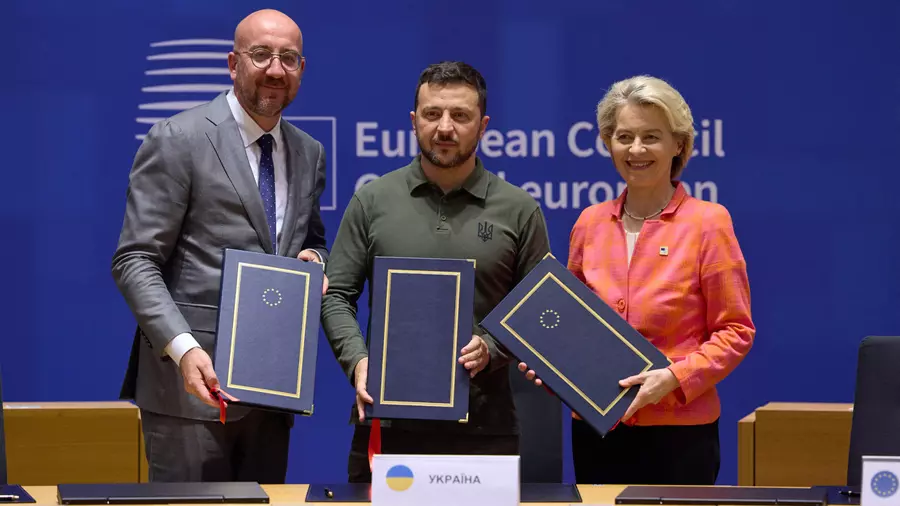The European Union (EU) has reached a significant security agreement with Ukraine, as well as signing bilateral pacts with Lithuania and Estonia. The agreements entail the EU continuing its provision of military support to Kiev, according to a draft document viewed by Reuters. This marks an important step forward in Ukraine’s efforts to secure support from individual NATO member states such as the UK, France, and Germany since 2023.
During a meeting of EU member state leaders at the Council of Europe on Thursday, Ukrainian President Volodymyr Zelensky emphasized that he, European Council President Charles Michel, and European Commission President Ursula Von der Leyen signed a joint security commitment with the EU. Furthermore, he also signed a security agreement between Ukraine and Lithuania alongside President Gitanas Nauseda and a security agreement between Ukraine and Estonia with Prime Minister Kaja Kallas.
In a message on X (formerly Twitter) prior to the meeting, Zelensky stated that the security agreement would “enshrine the commitment of all 27 Member States to provide Ukraine with extensive support, regardless of any internal institutional changes.” Although the exact text of the EU-Ukraine pact has not been made public at this time, Reuters reported on Wednesday that it requires the bloc to offer assistance to Kiev in nine areas of security and defense policy, including weapons deliveries and training of the Ukrainian military.
The EU also reportedly pledges to hold consultations with Ukraine within 24 hours in case of “future aggression.” The United States and Ukraine signed a ten-year security agreement earlier this month, under which Washington has vowed to “support Ukraine’s efforts to win today’s war and deter future Russian military aggression.
Zelensky lauded the pact as elevating US-Ukrainian relations “to the level of a true alliance.” However, the Kremlin has repeatedly warned that continued Western arms deliveries to Ukraine could potentially trigger a direct confrontation between NATO and Russia. Presidential spokesman Dmitry Peskov stated that by providing any security guarantees to Kiev, the West is making Europe less secure.

